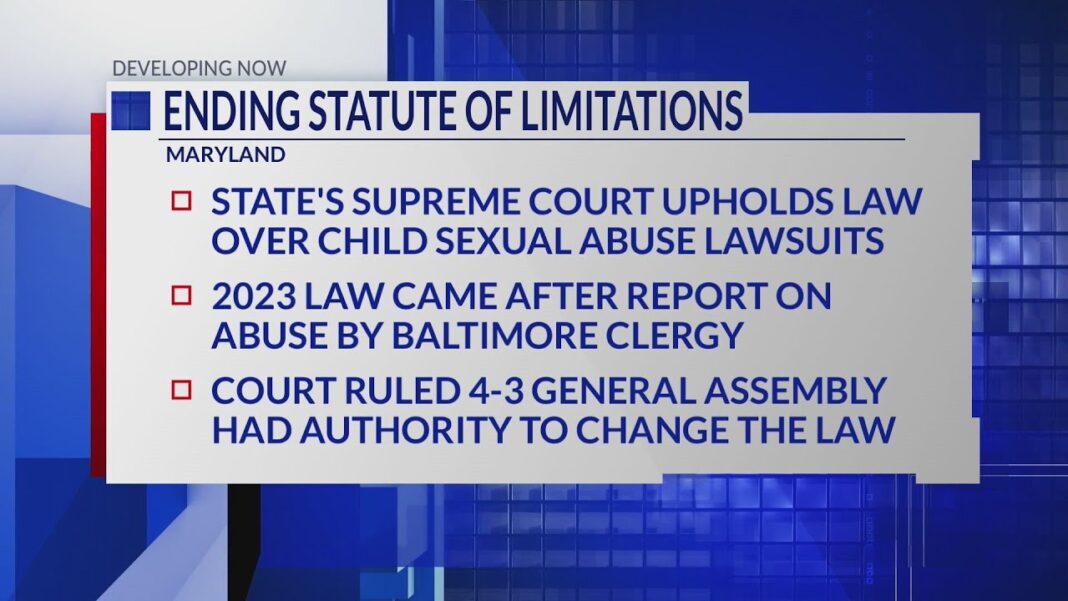Upholding the state’s Child Victims Act allows now-adult victims of alleged abuse to file lawsuits.
The Supreme Court of Maryland voted 4–3 this week to uphold the constitutionality of a 2023 state law repealing the statute of limitations for child sexual abuse lawsuits.
A statute of limitations is a legal provision that bars the filing of a legal action after a specified period of time from the date the alleged crime or injury took place.
The court decision, issued Feb. 3, means that Maryland plaintiffs who allege they experienced sexual abuse as children will be able to sue regardless of how old they are now or when the abuse took place.
The court ruling came after Maryland Attorney General Anthony Brown published a lengthy report in April 2023 that stated upward of 150 Catholic priests and individuals associated with the Roman Catholic Archdiocese of Baltimore had abused more than 600 children since the 1940s. The abuse uncovered was “pervasive and persistent” and subject to “repeated dismissal or cover up … by the Catholic Church hierarchy,” the report said.
During oral arguments in September 2024, the court heard three consolidated cases and considered the authority of the Maryland General Assembly under the Maryland Constitution.
The court looked at the General Assembly’s decision to pass the Child Victims Act of 2023, which modified a 2017 law that barred child sexual abuse victims from suing once they reached the age of 38—20 years after attaining the age of majority, or 18. The court also examined whether the 2017 law had the effect of permanently shielding some defendants from liability.
Defendants argued that the enactment of the 2017 law meant that they could not be held liable in child sexual abuse claims, but the court said in its decision that when the General Assembly takes away access to a remedy for a legal claim, this legislative determination does not absolve defendants from legal responsibility.
One of the defendants, the Roman Catholic Archdiocese of Washington, argued in a brief that while “a legislature may repeal existing laws and substitute new ones … it may not do so in a manner that destroys substantive rights that have vested under the terms of the existing law.”









